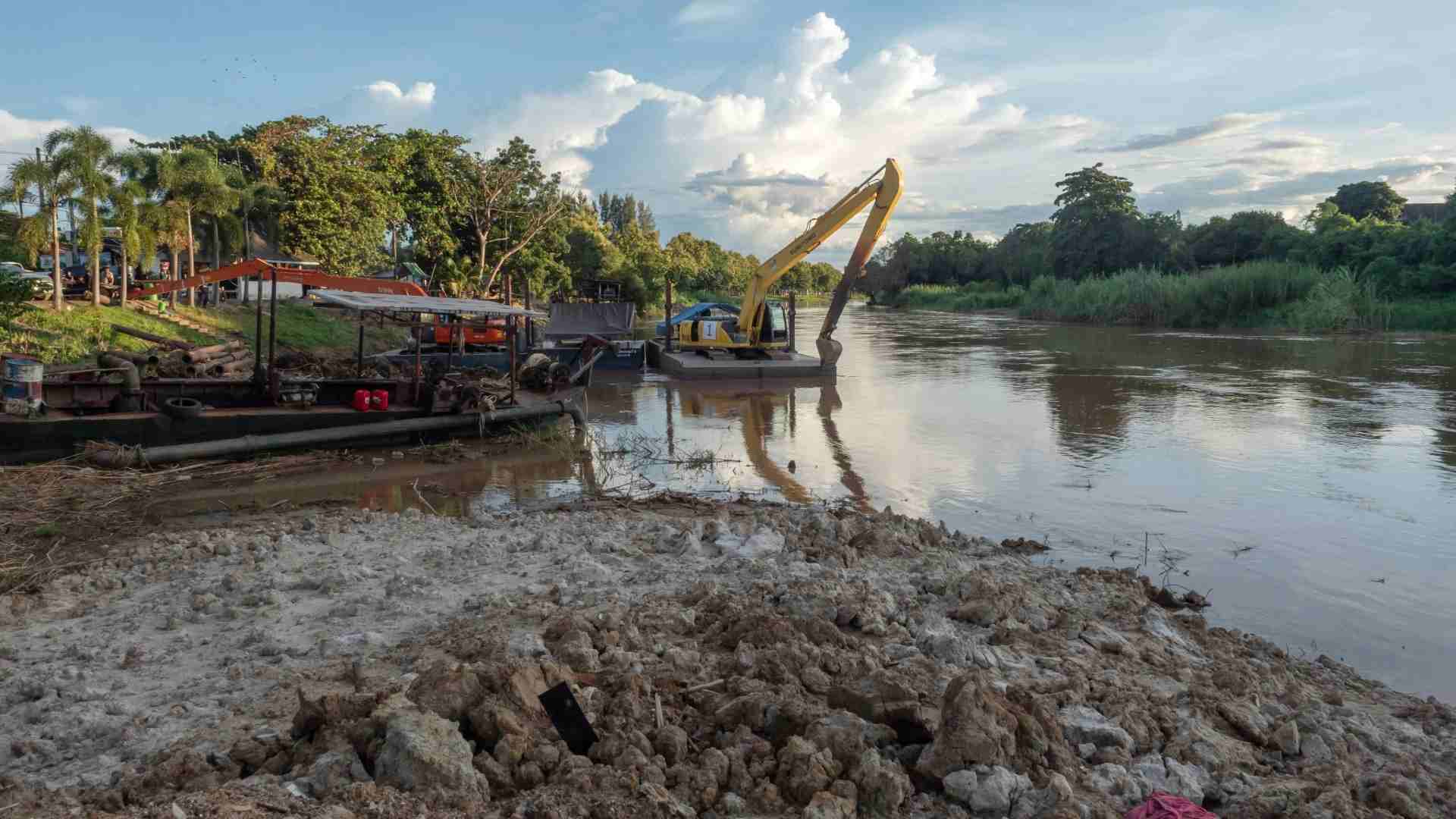Introduction
For over a decade, communities in Ibadan, Oyo State, have faced devastating floods that claimed lives, displaced families, damaged properties, and crippled local businesses. At the heart of this crisis was the Temidire River at Temidire Bridge, Oje Market, a location that separates Ibadan North and Ibadan North-East Local Government Areas. Narrow passages, accumulated silt, and unchecked waste disposal worsened the river’s capacity, causing seasonal overflow and severe flooding.
In response to this long-standing challenge, the Karim Adeyemi Foundation has embarked on a critical intervention—dredging and expanding the Temidire River. This project is more than just an engineering exercise; it is a life-saving initiative that promises safety, improved health, and renewed economic vitality for residents of Ibadan.
Why River Dredging Matters in Flood-Prone Communities
River dredging is the process of removing silt, sediment, and debris from the bottom and sides of a river channel. Over time, rivers naturally accumulate materials that reduce water flow capacity. In urban areas like Ibadan, waste dumping and inadequate drainage systems exacerbate the problem, leaving rivers unable to cope with heavy rainfall.
By dredging the Temidire River, the project restores the channel’s depth and width, enabling smoother water flow and preventing overflow during peak rainfall. The expansion of the river further enhances its capacity to carry water, offering long-term protection against flash floods.
Communities across Nigeria and globally have relied on dredging as a proven solution to flood risks. Whether in Lagos, Port Harcourt, or international cities near large rivers, dredging remains central to protecting both people and property.
Tackling a Decade of Flood Devastation
Flooding in Ibadan is not new. In fact, the city has recorded several tragic incidents over the years, with families losing loved ones and entire neighborhoods submerged. Beyond physical destruction, floods contribute to poor sanitation, outbreaks of waterborne diseases, and the collapse of small-scale businesses—especially around markets like Oje, where trade sustains local livelihoods.
The dredging of the Temidire River is therefore more than just an infrastructure upgrade—it is a response to years of community suffering. By deepening and widening the water channel, this initiative directly reduces the risk of another decade of destruction.
Health and Safety Benefits of Dredging
Floodwaters often carry harmful pollutants, human waste, and industrial runoff into residential areas, posing significant health risks. In Ibadan, recurrent floods have been linked to outbreaks of cholera, malaria, and other diseases. With the river dredging project, stagnant pools of water are minimized, reducing mosquito breeding grounds and improving overall hygiene in the community.
Moreover, ensuring the river flows freely reduces the likelihood of bridges collapsing or roads being washed away. For families living close to the Temidire Bridge, this dredging initiative translates directly into safer homes and stronger community resilience.
Economic Impact: Reviving Local Commerce
One of the most immediate beneficiaries of the dredging and expansion of the Temidire River is Oje Market, a bustling commercial hub that has repeatedly suffered from flood disruptions. Traders have lost goods worth millions of naira during past floods, discouraging investment and weakening Ibadan’s economy.
With improved flood control through dredging, businesses can operate without constant fear of water damage. This stability not only restores livelihoods but also attracts more trade, bolstering the local economy. Additionally, reduced flood damage lowers government spending on emergency relief and infrastructure repair, freeing resources for development.
Environmental Considerations in River Dredging
While river dredging is essential for flood control, it must be carefully managed to avoid negative environmental impacts. Removing sediment can disturb aquatic habitats, and improper disposal of dredged material may pollute the surrounding land.
The Temidire project emphasizes responsible dredging practices, ensuring that sediments are safely relocated and riverbanks are reinforced against erosion. By combining dredging with river expansion, the project strikes a balance between flood mitigation and environmental sustainability.
Community Involvement and Long-Term Solutions
Dredging alone cannot solve all of Ibadan’s flooding problems. Community involvement is critical to ensure long-term success. Residents must avoid the indiscriminate dumping of refuse into waterways, while local authorities need to enforce proper waste management and ensure effective drainage maintenance.
The Karim Adeyemi Foundation’s intervention is a significant first step, but sustained collaboration between government, private organizations, and the people will determine the future of flood resilience in Ibadan. Complementary measures, such as building retention ponds, installing flood warning systems, and enhancing urban planning, should be implemented in conjunction with dredging efforts.
A New Chapter for Ibadan
The dredging and expansion of the Temidire River marks the beginning of a new chapter for Ibadan. What was once a symbol of disaster and despair now becomes a source of safety, stability, and opportunity. With lives protected, health risks reduced, and local commerce revived, the project shows how targeted dredging interventions can transform urban communities.
For residents of Temidire, Oje Market, and surrounding neighborhoods, this initiative is more than a technical solution—it is hope restored. By prioritizing river dredging as a tool for flood control, Ibadan sets an example for other flood-prone cities in Nigeria and beyond.
